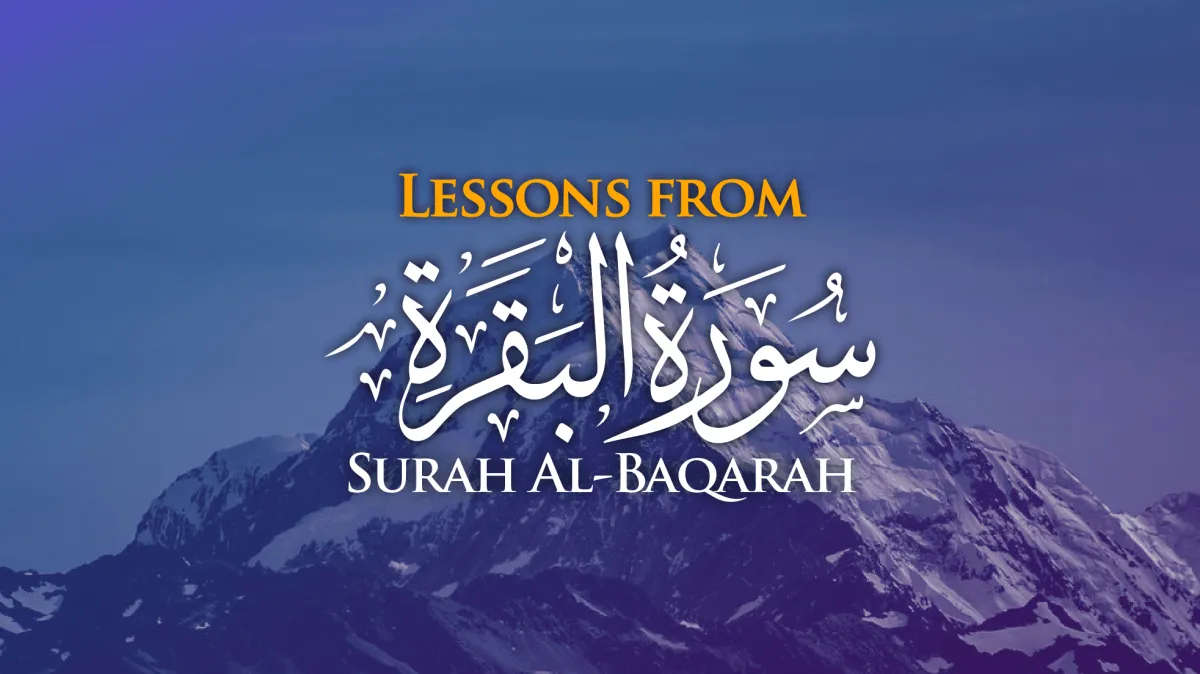
Lessons from Surah Al-Baqarah
Surah Al-Baqarah, the second chapter of the Quran, is the longest surah, consisting of 286 verses (ayahs). It is a surah revealed after the migration of the Prophet Muhammad (peace be upon him) to Medina. Its name, "Al-Baqarah," means "The Cow," and it derives from the story of the cow mentioned in verses 67-73. This surah covers a wide range of themes, including faith, guidance, law, and morality, providing a comprehensive framework for personal and communal conduct for Muslims.
Selected Ayas and Their Meanings
1. Ayah 2-5: The Quran as Guidance
"This is the Book about which there is no doubt, a guidance for those conscious of Allah." (2:2)
These verses affirm the Quran's role as a definitive guide for those who are conscious of Allah. The Quran's clarity and authority make it an essential source of guidance for believers, offering insights and directives for leading a righteous life. It emphasizes that the Quran is not just a book of rituals but a comprehensive guide for all aspects of life.
2. Ayah 286: Allah's Mercy and Justice
"Allah does not burden a soul beyond that it can bear. It will have [the consequence of] what [good] it has gained, and it will bear [the consequence of] what [evil] it has earned. Our Lord, do not impose blame upon us if we forget or make a mistake. Our Lord, and lay not upon us a burden like that which You laid upon those before us. Our Lord, and burden us not with that which we have no ability to bear. And pardon us; and forgive us; and have mercy upon us. You are our protector, so give us victory over the disbelieving people." (2:286)
This verse highlights Allah's justice and mercy, reassuring believers that they will not be burdened beyond their capacity. It teaches that every individual is accountable for their own actions and emphasizes the importance of seeking Allah's forgiveness and mercy. This verse is often recited by Muslims in their prayers, reflecting the deep connection between the believer and the Creator.
3. Ayah 255: Ayat Al-Kursi (The Throne Verse)
"Allah! There is no deity except Him, the Ever-Living, the Sustainer of [all] existence. Neither drowsiness overtakes Him nor sleep. To Him belongs whatever is in the heavens and whatever is on the earth. Who is it that can intercede with Him except by His permission? He knows what is before them and what will be after them, and they encompass not a thing of His knowledge except for what He wills. His Kursi extends over the heavens and the earth, and their preservation tires Him not. And He is the Most High, the Most Great." (2:255)
Ayat Al-Kursi is one of the most powerful verses in the Quran, describing Allah's sovereignty, knowledge, and power. It is a verse that provides comfort and reassurance to believers, reminding them of Allah's constant presence and protection.
Lessons and Reflections
Unity and Brotherhood
Surah Al-Baqarah emphasizes the unity of the Muslim ummah (community) and the importance of mutual respect and cooperation. It encourages believers to stand together in faith and to support one another in times of need. This collective unity is crucial for fostering a strong, cohesive community that upholds Islamic values.
The emphasis on unity can be seen in the surah's calls for mutual support and assistance among believers. For example, verse 177 highlights the importance of spending in charity, taking care of orphans, and supporting those in need. These acts of charity not only help the less fortunate but also strengthen the bonds of brotherhood and create a sense of solidarity within the community.
Faith and Obedience
The themes of faith and obedience are central to Surah Al-Baqarah. The surah calls on believers to have unwavering faith in Allah and to adhere to His commandments. This obedience is not blind but is rooted in understanding and conviction. By following Allah's guidance, believers can navigate the challenges of life with clarity and purpose.
One of the key lessons in this regard is the importance of seeking knowledge and understanding the reasons behind the commandments. For instance, the surah encourages believers to reflect on the stories of previous prophets and their communities, learning from their experiences and mistakes. This reflective approach helps in strengthening one's faith and adherence to divine guidance.
Social Justice
Surah Al-Baqarah places a strong emphasis on social justice, charity, and fairness in dealings with others. It calls for equitable treatment of all individuals, especially the vulnerable and marginalized. The surah's teachings on zakat (charitable giving) and fair trade practices highlight the importance of economic justice and the need to address social inequalities.
The emphasis on social justice can be seen in verses such as 177 and 188, which highlight the importance of honesty and integrity in financial transactions. These verses stress that believers should avoid deceit and dishonesty in their dealings, and instead, strive for fairness and transparency. By upholding these principles, Muslims can contribute to a just and equitable society.
Conclusion
Surah Al-Baqarah offers a rich tapestry of guidance, covering various aspects of faith, law, and morality. Its teachings are timeless, providing a comprehensive framework for leading a righteous and fulfilling life. By reflecting on its verses and applying its lessons, believers can deepen their understanding of the Quran and enhance their spiritual and moral growth. Encouraging readers to delve into Surah Al-Baqarah can inspire a greater commitment to living in accordance with Islamic principles, fostering a more just and compassionate society.
